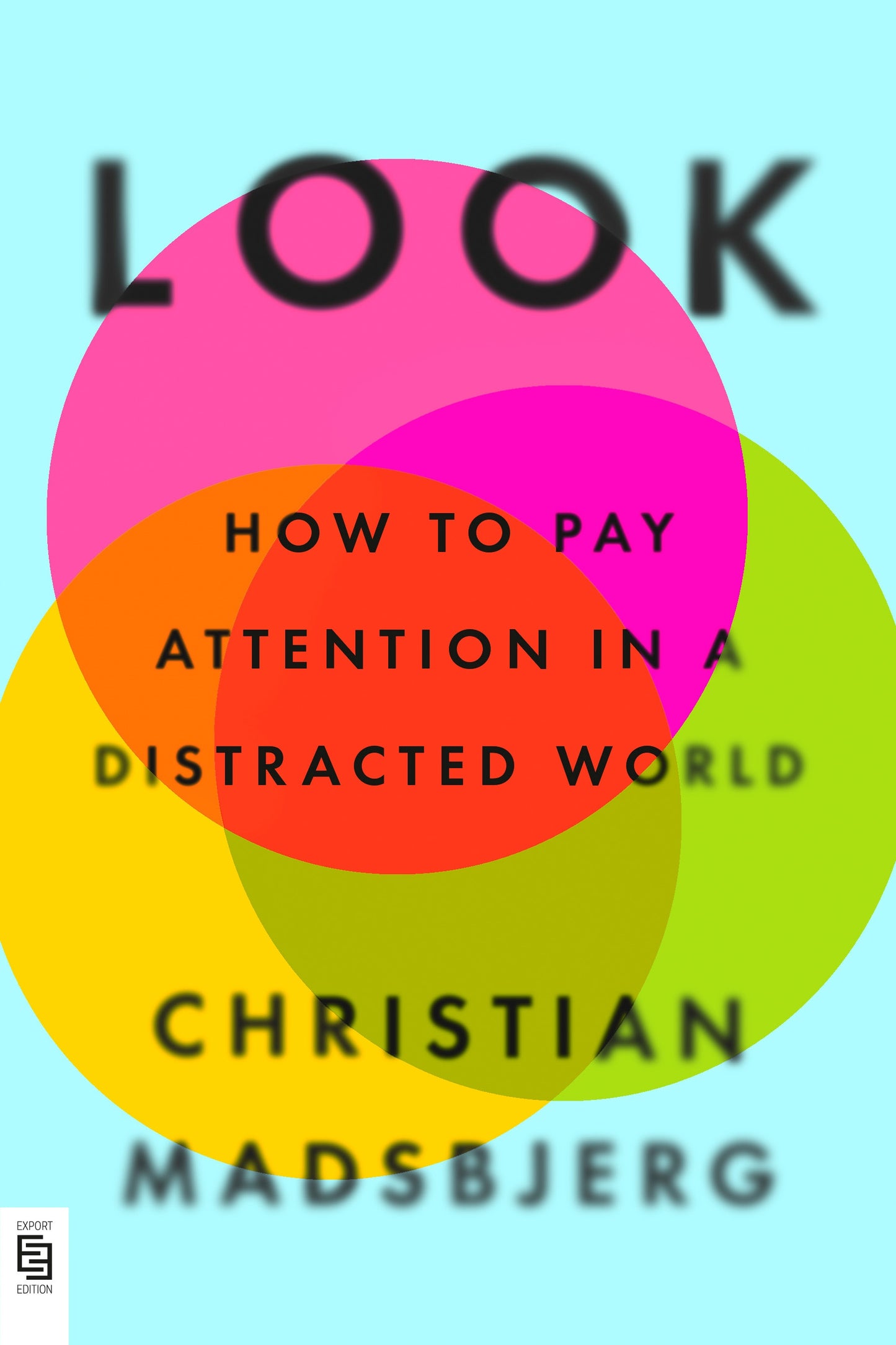Christian Madsbjerg
Look
Look
Couldn't load pickup availability
Gabi's Review
Are you paying adequate attention? In a world whose work culture is focused on perceived productivity combined with a social media environment designed to distract us it is no wonder it appears our attention spans have been fractured into the equivalent of a severe eighties perm! Johan Hari's excellent book Stolen Focus explains the complexities of social media's instant gratification mechanism that entrenches the distraction/gratification cycle to perfection. Gloria Markham's extraordinary book Attention Span looks at workplace environments among many other factors demonstrating how the multiple "schema" we are required to entertain on the whiteboards of our minds depletes our efficacy. Gloria's book offers many solves and practical guidance towards mitigating these effects.
Christian Madsbjerg's interesting new book Look is no self-help manual. Instead he explores the value of paying attention to the world around us, through the concept of "hyper-reflection." This learned skill requires us to let go of our preconceived notions and look beyond the obvious. With the help of philosophy and real-life examples, the author guides readers in honing their observation skills and seeing the world in a new light. One fascinating example is French anthropologist Pierre Bourdieu's observation of the "unmarriageables" in his village, who were left behind by modernity and the greater cognitive capacities that endure in this example cohort. While learning to observe and analyze takes patience, this book proves that the results are worth it.
Publishers Reviews
We've forgotten how to pay attention, Christian Madsbjerg says in his provocative new book. Listening carefully and observing intentionally are crucial human skills, yet we're not born knowing how to do them. And thanks to the ubiquity of social media, increasing social isolation, and the use of empty imagery and ideology as stand-ins for direct observation, we're losing our ability to interpret the world at a time when we desperately need to do that.
Madsbjerg, a consultant and a professor at the New School, noticed this disturbing trend and in 2015 began to co-teach a course on human observation called How to Pay Attention. To his surprise, the course has been oversubscribed since the beginning, with hundreds of students-philosophy and business majors, undergrads and graduate students-signing up for it, and hundreds more on waiting lists.
In this book, Madsbjerg argues that most of us are stuck in bad habits of looking at the world without truly seeing it, and he guides us through the key observational skills we need to explain how we can recapture our ability to truly pay attention-what he calls "the meta-skill of observation." Pulling from his own background and drawing examples from the arts, philosophy, and beyond, Madsbjerg has written a book of insightf and practical wisdom that highlights how we can pay sharper attention to live with more empathy and connect better with others.
A powerful exploration of how we pay attention that will transform the ways we connect with one another - at home, at work, and beyond.
Paying attention is a crucial human skill, yet many of us have forgotten how to listen carefully and observe intentionally. Deluged by social media and hobbled by the increasing social isolation it fosters, we need to rediscover the deeply human ways we connect with others.
Christian Madsbjerg, a philosopher and entrepreneur,understands this dilemma. To counteract it, he began a course at The New School in New York City called Human Observation, which lays out the ways that we can learn to pay attention more effectively. The course has been hugely popular since its inception, with hundreds of students filling waiting lists.
In Look, Madsbjerg sets out the key observational skills needed to show how we can recapture our ability to pay attention. Drawing from philosophy, science, the visual arts, and his own life, he offers both practical insights and a range of tools for experiencing the world with greater richness and texture. The result is a dynamic approach to rethinking observation that helps all of us to see with more empathy, accuracy, and connection to others.
Share


